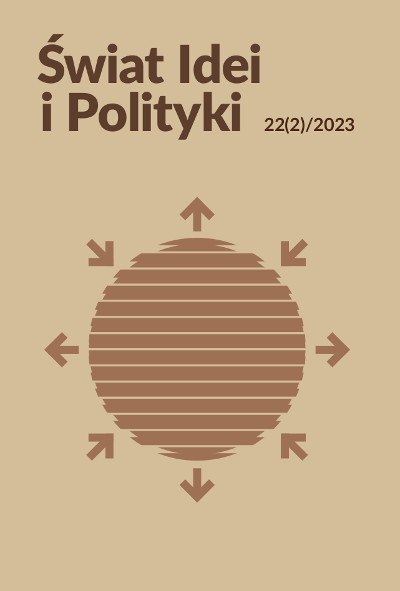Putin’s War of Attrition and Contemporary Conditions of the Political Order of Central-Eastern Europe
DOI:
https://doi.org/10.34767/SIIP.2023.02.02Keywords:
Russian Federation, Ukraine, Russo-Ukrainian war, international security system, Central and Eastern EuropeAbstract
This paper studies the Russian Federation’s superpower aspirations under President Vladimir Putin’s leadership, culminating in Ukraine’s military invasion in February 2022. The analysis here displays several fundamental factors responsible for the threats that the Kremlin’s great-power policy poses to modern international security systems and, above all, to the political order of Central and Eastern Europe. The research questions concerned the fundamental issues responsible for the primary forms of antagonism destabilizing the mutual relations between Russia and Ukraine, inscribed in the context of the multidimensional dynamics of contemporary geopolitical conditions. The discourse presented by the authorities in the Kremlin points to ambiguity, ambivalence of meaning, multifacetedness, and even inconsistency of the Russian narrative on international security, especially in the context of the war with Ukraine. That is why the above issues are considered the sphere of the most complicated problems of contemporary issues affecting Russia and Ukraine. Diagnosing the impact of the discussed factors can help understand and, over time, shape more effective international security strategies, as well as create better support programs that effectively solve Central and Eastern European security problems. In addition, finding answers to such research questions is significant in the context of contemporary global political changes, which – in conjunction with the “political correctness” issue – become a severe challenge for the entire global concept of international security.
References
Jureńczyk, Ł. (2022). The Risk of Russia Using Nuclear Weapons Due to the War in Ukraine from the American Perspective. Środkowoeuropejskie Studia Polityczne, 4, 49–64. DOI:10.14746/ssp.2022.4.3.
Kappeler, A. (2014). Kleine Geschichte der Ukraine. München: C.H.Beck.
Kappeler, A. (2023). Ungleiche Brüder: Russen und Ukrainer vom Mittelalter bis zur Gegenwart. München: C.H. Beck Verlag.
Karatnycky, A. (2005). Ukraine’s Orange Revolution. Foreign Affairs, 84(2), 35–52.
Kozyrev, A. (2020). The Firebird: The Elusive Fate of Russian Democracy. Pittsburg, Pa: Pittsburg University Press.
Lamoreaux, J.W. & Flake, L. (2018). The Russian Orthodox Church, the Kremlin, and religious (il)liberalism in Russia. Palgrave Communications, 4(1), 1–4.
Rumer, E. (2016). Russia and the Security of Europe. Washington, DC: Carnegie Endowment for International Peace.
United Nations (2022a). General Assembly, Resolution adopted by the General Assembly on March 2, 2022, A/RES/ES-11/1, Aggression against Ukraine.


